A Day in the Life: Online Schooling in Beijing
Since the beginning of the Novel Coronavirus (COVID-19) pandemic, more than 180 million primary and secondary school students across China have gone online or switched on TV to attend class. The spring semester, which was originally scheduled to start in early February 2020, was postponed in an effort to contain the outbreak of COVID-19 and then later after consultations by the Government of China, was moved to a new type of digital learning.
Xiaoyu is one of the students impacted by this change; an eleventh grader who lives in Beijing, she now spends her days at home, taking lessons through the new online platform.
“Compared with normal schooling, online learning is less effective to me. At school, I can approach teachers at any time if I have questions, and I can also discuss with my classmates,” Xiaoyu says. “I miss my friends,” she says. “We sometimes talk about the outbreak and when school will start. Staying at home for such a long time is so boring.” Xiaoyu continues,
“When I first learned the news about the postponing of spring semester, I was happy about the extended holiday. But now I just want to go back to school.”
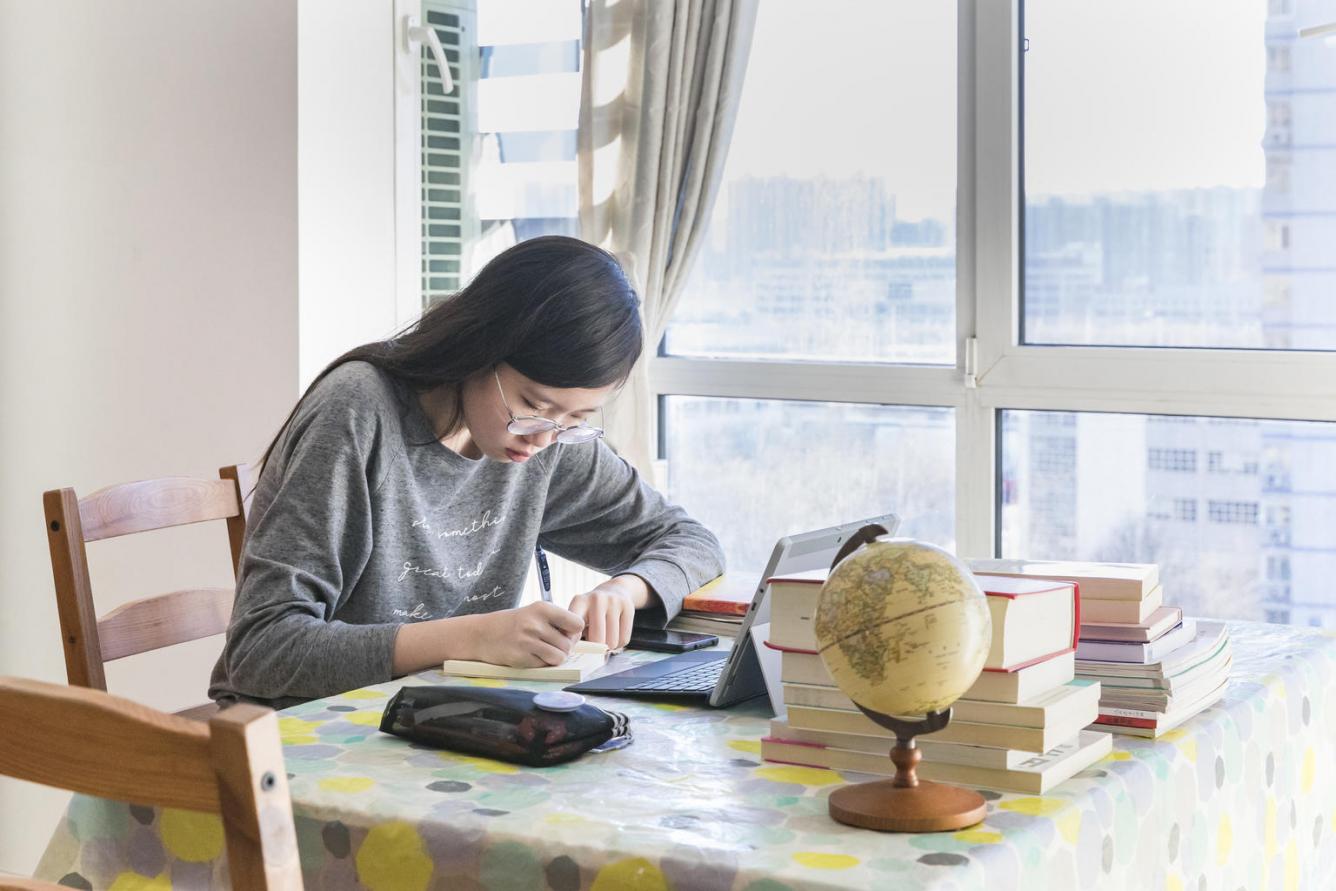
At 8 AM, Xiaoyu starts her day by logging to an online platform launched by the Ministry of Education (MOE) and the Ministry of Industry and Information Technology. For children who have limited internet access, lessons are also being broadcast on television. By 4 PM Xiaoyu will have attended six classes.
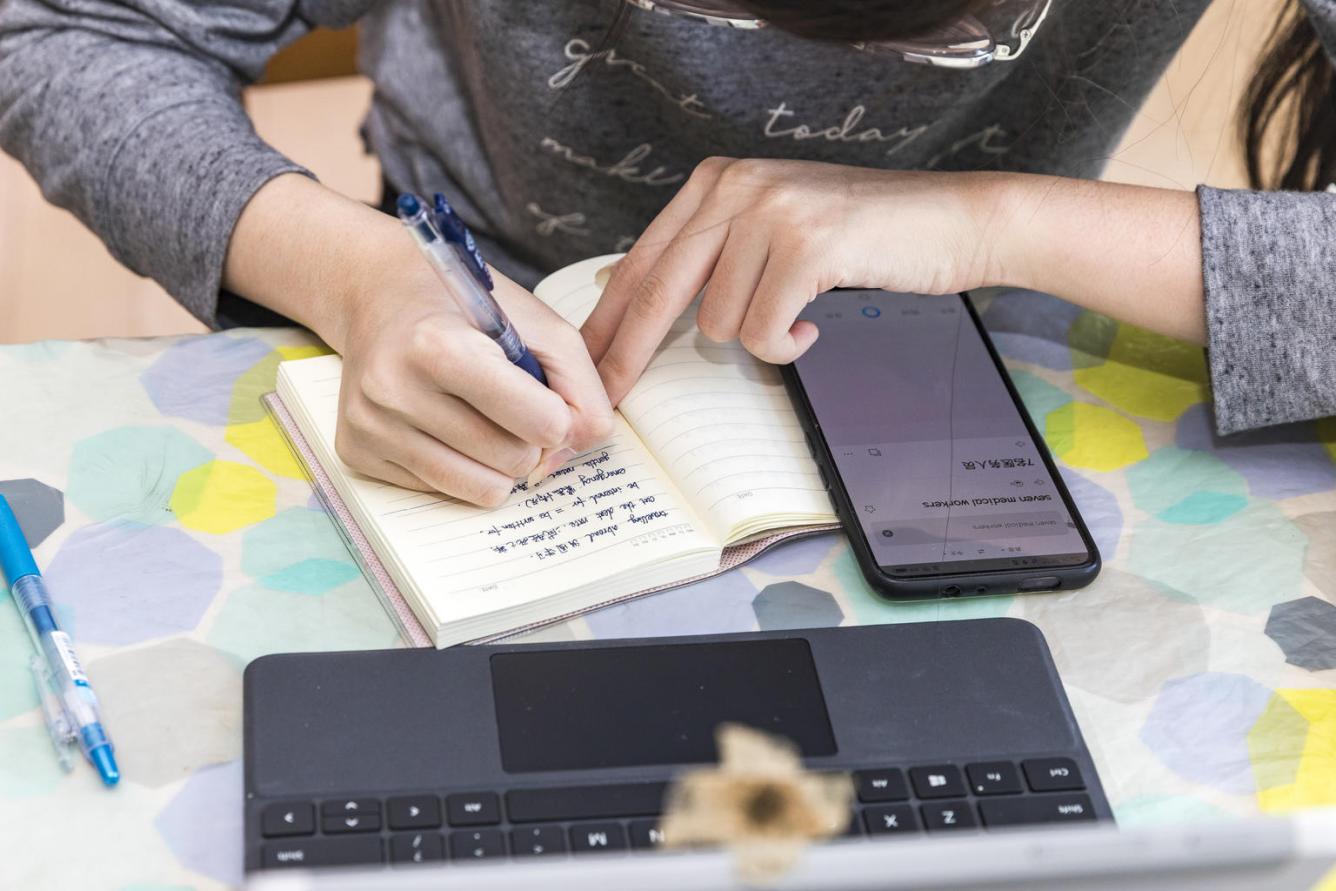
Xiaoyu takes notes during her English class. There is an online question and answer session every day and teachers are also available to address questions raised by students about their studies and to offer psychosocial counselling.
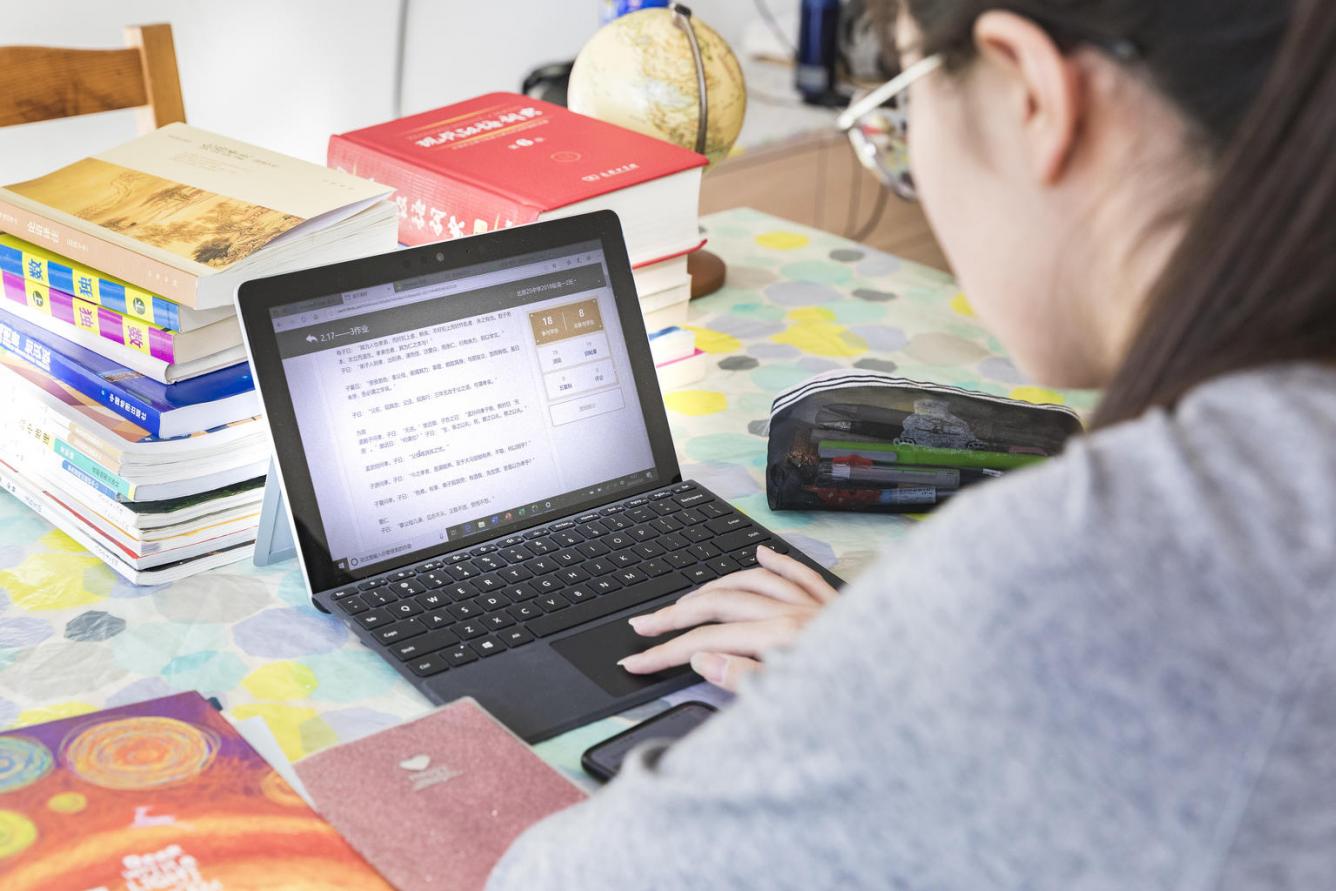
Xiaoyu reviews her Chinese language assignment on a cloud-based platform. To prevent overburdening students, the MOE has stipulated that online classes help students review knowledge rather than offering new lessons.
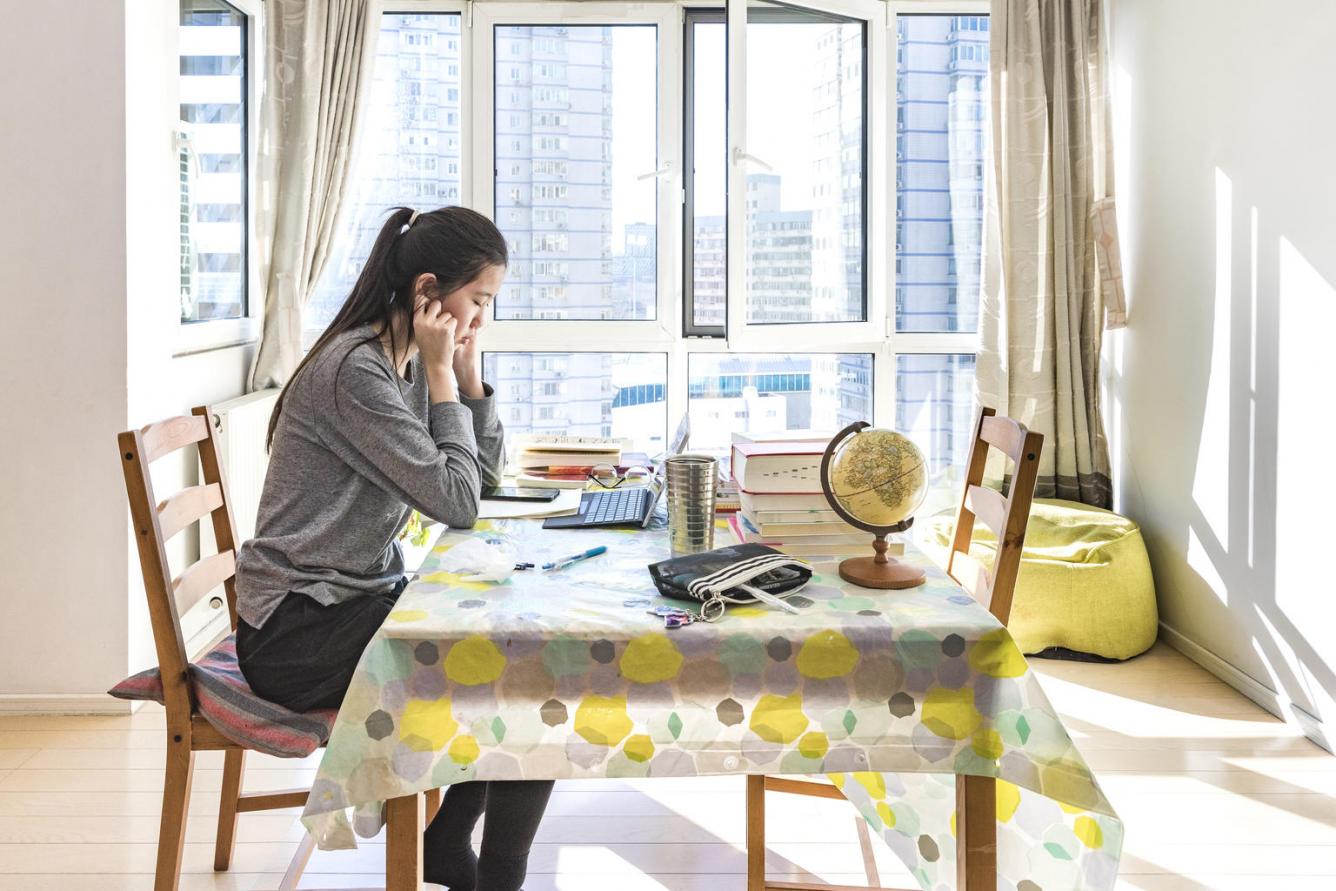
During one of her scheduled breaks, Xiaoyu practises an eye exercise to protect her vision and prevent myopia, as a result of her now-additional daily screentime.
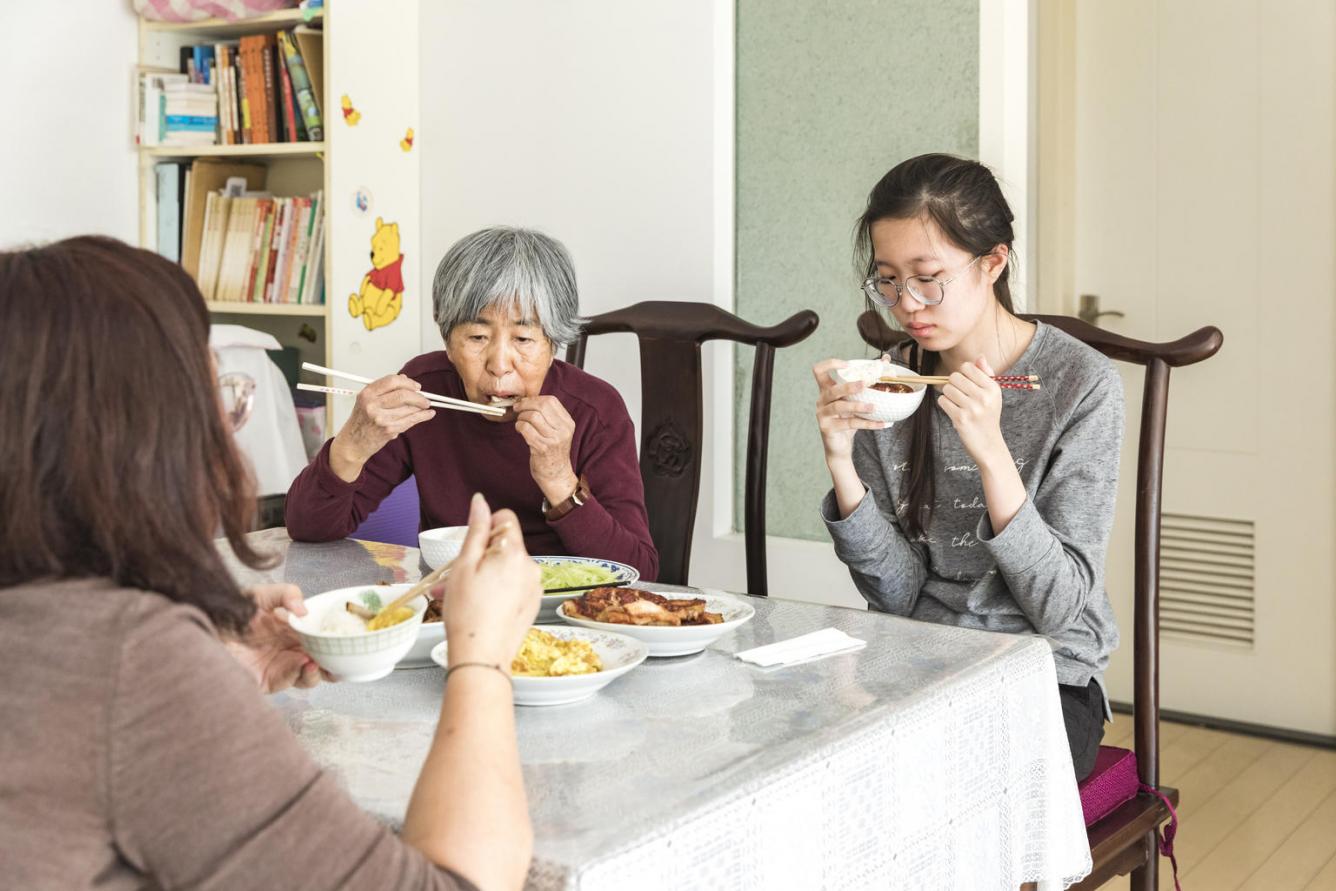
During another break from lessons, Xiaoyu takes time to eat lunch with her family.
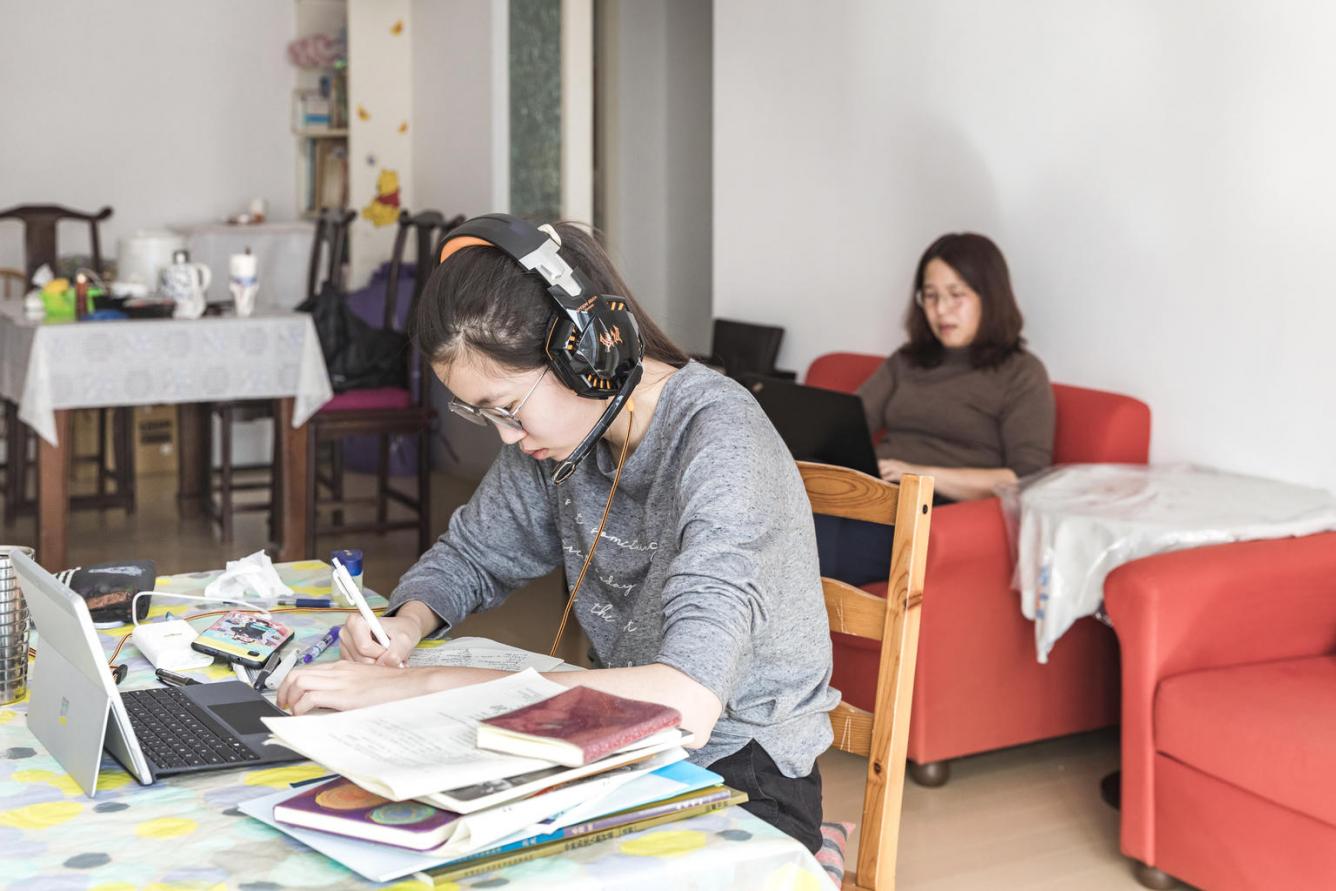
After lunch, Xiaoyu continues her studies, while (background) her mother also works remotely. Due to the outbreak, a lot of employers implemented flexible working modalities.
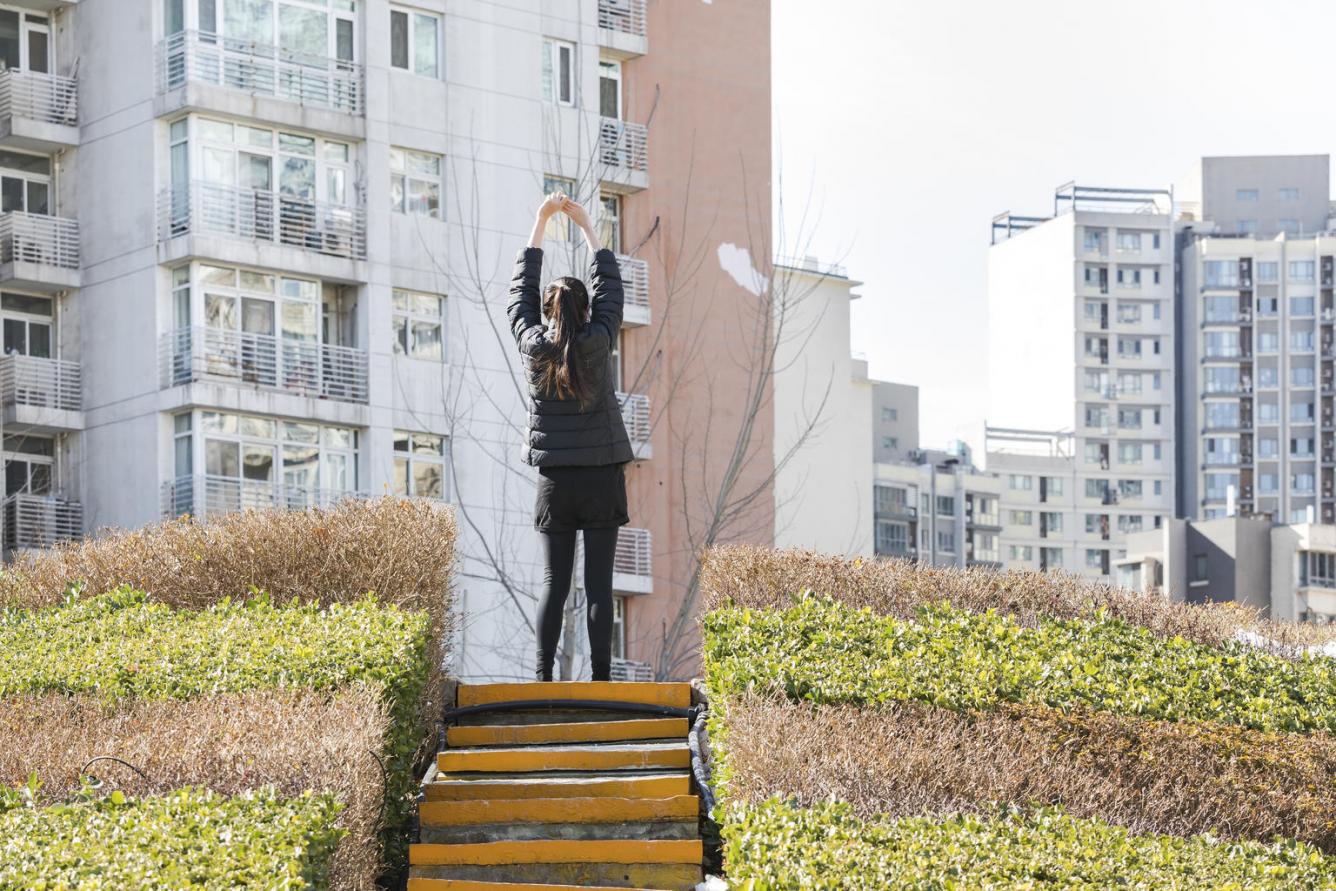
After her classes finish for the day, Xiaoyu takes a walk in a nearby park to get exercise and fresh air. In addition to regular walks, Xiaoyu also works out at home, to keep up with her school’s required fitness classes.
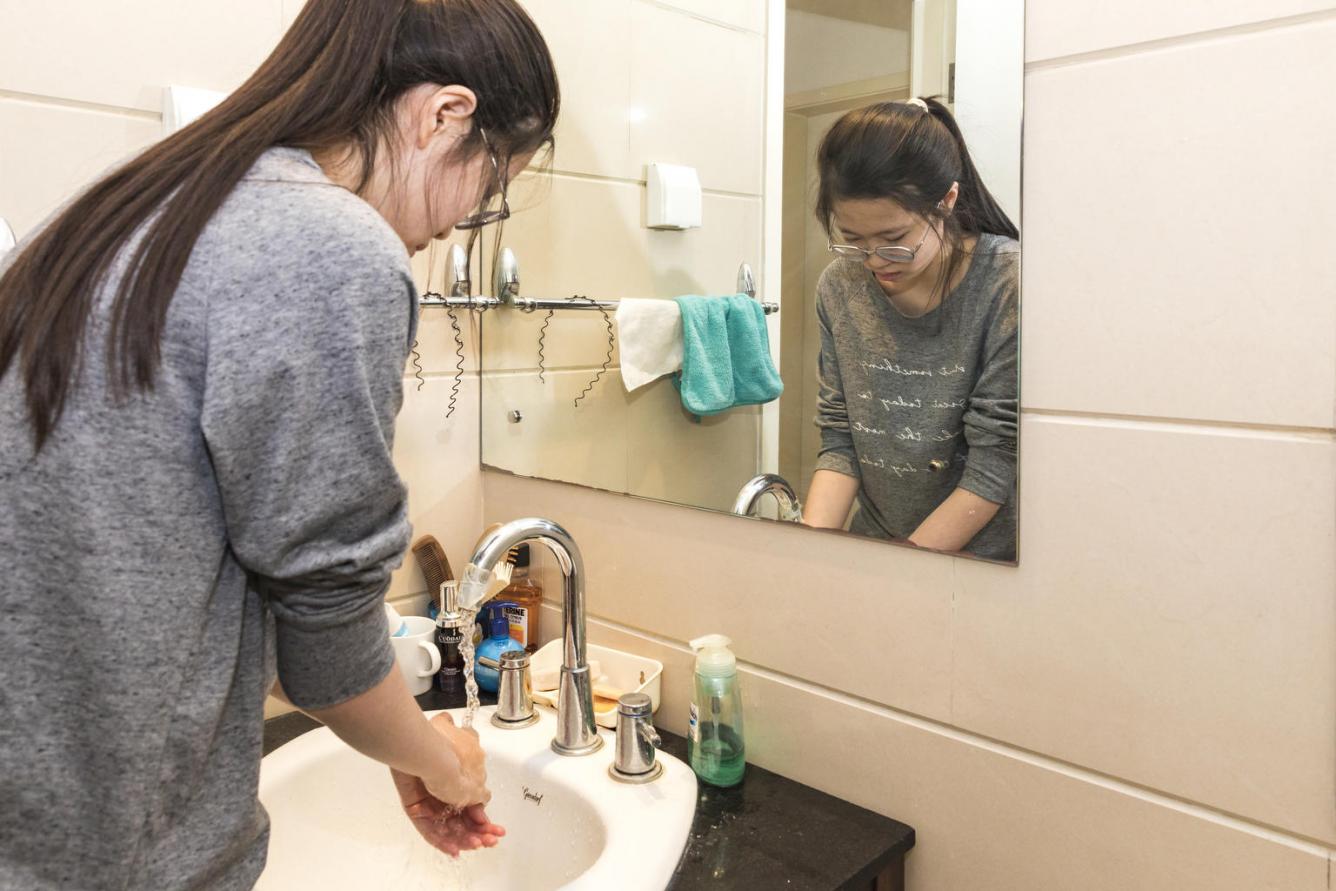
Upon returning home from her walk, Xiaoyu washes her hands with soap. She says her teacher has shared some health guidance on how to prevent infection in her class’ group chat, including proper handwashing techniques.
